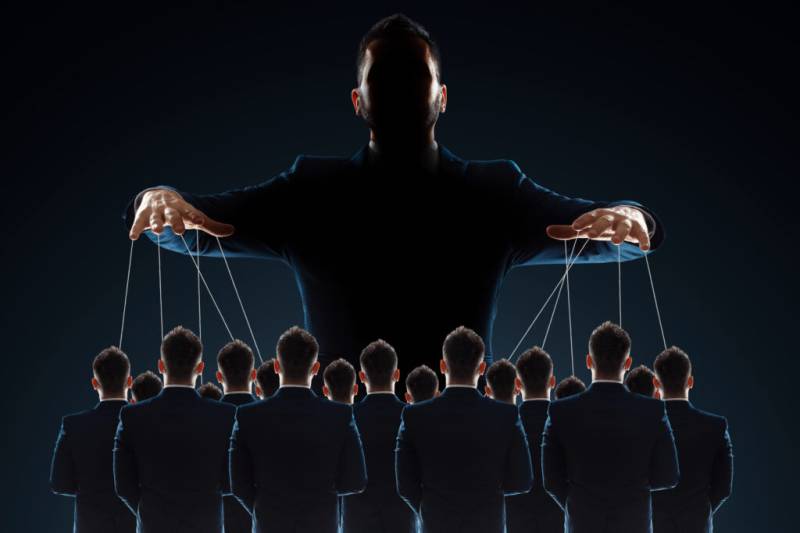
“The best political weapon is the weapon of terror. Cruelty commands respect. Men may hate us. But, we don’t ask for their love, only for their fear.” — Heinrich Himmeler
Fear, or in other words, the apex of high anxiety is a means which enables all living things to protect themselves from harm. Of course, some things are natural, like the fear of darkness. Anything that cannot be viewed with open eyes can instill a fear of the unknown. Not only that, fear can also sprout from something that silently lurks in the subconscious minds of human beings, taking a slightly different form - popularly understood as ‘phobias.’ Fear of heights, fear of falling down the stairs, fear of catching disease, fear of flying or elevators, fear of non-existent terrorists, even fear of death. The very idea of vaults or high walls or strong embankments, spring forth from the fear of losing wealth or one’s life or a natural calamity. Succinctly speaking, fear is an important emotional response for the sake of survival, and to respond to the presence and imminence of danger.
Who can deny the feeling of awe on viewing, say a giant, a magnificent palace, a medieval castle, the Khalifa Tower in Dubai, the Duomo di Milano, the vast oceans, the Himalaya Mountains? Their massive scale, in comparison with the small stature of a human being, is by itself dumbfounding and intimidating. A likely vicious hermit in shabby clothes sitting on the bare ground hardly invokes fear, but a weakling adorning an ostentatious throne can make one’s hair stand on end. In order to keep their children disciplined, stay-at-home moms sometimes use the father-figure as a frightening agent, although he may actually be a lamb at heart. Even the words ‘what will people say?’ are enough to contain a potential act of mischief from occurring.
Fear is essentially not meant to be eliminated, no matter how many claim to be absolutely fearless. It is instinctive and one of the most crucial senses we are biologically gifted with for our survival as a species. Even the so-called ultra-brave do take some precautionary measures before they embark upon a dangerous mission, to avoid an untoward incident.
"When people panic, they can become hysterical, and hysteria often leads to mass violence. When politicians convince people that they are in a life-or-death battle—that survival is a matter of "us or them" - anything becomes possible.”
While in most cases fear is related to one’s own self, in some it may be for others too. For example, parents in general are more concerned about their children’s welfare than they are for themselves. Mothers have been heard to say that they are not afraid of falling ill themselves, but would never want their child to fall victim to any physical or mental ailment. Another case in point is that of soldiers who courageously fight in combat to keep their people from harm. So where fear has its positive elements, it is also a failing for human beings, especially when it is (ab)used as a potential weapon to subdue and deprive them from exercising their free will, forcing them into silence with respect to their fundamental rights or preventing them from defying the rule of tyranny.
The policy of instilling fear is invoked by religious leaders who constantly remind followers of the fire in hell to which ‘sinners’ would be subjected. They deliberately construct expansive and extremely impressive worship houses to overwhelm the worshippers and in this garb they are able to control human beings in such a way that ensnares their mental faculties with the irreplaceable garment of fear.
On the national level, certain governments actually manufacture fear to maintain power and pursue their evil or selfish interests. People in such jurisdictions are victims more than they are self-assured citizens. Unexpected perilous events do not happen on a regular basis, but fear is a perpetual experience that compels individuals to back away from normal life or make the best of their inert talents. Fear demotivates. Fear suppresses freedom. Fear shatters confidence. Fear kills the spirit of human dignity.
Ian Buruma, Paul W. Williams Professor of Human Rights and Journalism at Bard College in New York State USA, and the author of Year Zero: A History of 1945 writes: “There are many roads to political disaster: greed, hubris, the charisma of the demagogue and, perhaps most dangerous of all, fear. When people panic, they can become hysterical, and hysteria often leads to mass violence. When politicians convince people that they are in a life-or-death battle—that survival is a matter of "us or them" - anything becomes possible.”
“Adolf Hitler combined all the elements of political catastrophe: hubris, charisma, greed and the idea that "Aryans" and Jews were locked in a struggle for survival. Of course, none of the demagogues in the West today—from Donald Trump in the United States to Marine Le Pen or Geert Wilders in Europe—are comparable to Hitler. None has promoted dictatorship, let alone mass murder. But they are definitely stirring up the politics of fear”.
Hermann Goering, one of Hitler’s chiefs and notoriously cold masterminds of the Nazi regime, once confessed during a Nuremberg trial recess to the American psychologist Gustave Gilbert how pathetically easy it was to bring populations under control by fear. An excerpt from Gilbert’s Nuremberg Diary says, “Naturally, the common people don’t want war; neither in Russia nor in England nor in America, nor for that matter in Germany. That is understood. But, after all, it is the leaders of the country who determine the policy and it is always a simple matter to drag the people along, whether it is a democracy or a fascist dictatorship or a Parliament or a Communist dictatorship.”

